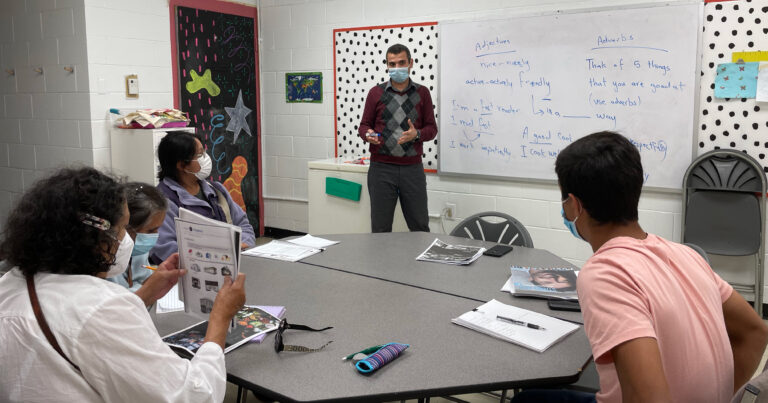Learn English Without A Teacher : Unlock Fluency Fast
Learning English can be an exciting and rewarding experience, but not everyone has the resources or opportunity to have a dedicated English teacher. However, with the right approach and determination, it is still possible to learn English efficiently and effectively on your own.
1. Set Clear Goals
Before diving into the world of learning English, it is important to set clear goals for yourself. Ask yourself why you want to learn English and what you hope to achieve. Having specific goals will give you direction and motivation throughout your language learning journey.
2. Create a Study Plan
To make the most out of your self-study, it is crucial to create a study plan. Divide your learning sessions into manageable chunks and allocate specific times for each activity, such as reading, listening, writing, and speaking. Having a structured study plan will help you stay organized and focused.
3. Take Advantage of Online Resources
The internet is a treasure trove of resources for learning English. Take advantage of online platforms, such as websites, podcasts, YouTube channels, and language learning apps. These resources offer a wide range of materials, interactive exercises, and language tools that can enhance your learning experience.
4. Develop a Reading Habit
Reading is an effective way to expand your vocabulary, improve your grammar, and enhance your overall language skills. Start with simple texts, such as short stories or articles, and gradually work your way up to more complex materials. Consider using bilingual books or online dictionaries to assist you in understanding unfamiliar words.
5. Practice Listening Skills
Improving your listening skills is vital for understanding spoken English. Listen to podcasts, watch movies or TV shows in English, and try to immerse yourself in English as much as possible. Take notes while listening to help you remember new words and expressions.

Credit: m.youtube.com
6. Engage in Speaking Activities
Although there might not be a teacher present, you can still practice speaking English by engaging in various activities. Join language exchange groups or find online language partners to have conversations with. Speaking regularly will help you feel more confident and improve your fluency.
7. Use Vocabulary Flashcards
Vocabulary is the building block of language learning. Create flashcards with new words and review them regularly. You can use physical flashcards or digital flashcard apps to memorize and test your knowledge. Flashcards are an effective tool for expanding your vocabulary and reinforcing word associations.
8. Keep a Language Journal
Writing in a language journal can help you practice your writing skills and track your progress. Write about your learning journey, daily experiences, or even create short stories in English. Reflecting on your writing will enable you to identify areas that need improvement and monitor your language development.
9. Join Online Communities
Engaging with like-minded individuals who are also learning English can be incredibly beneficial. Join online communities, language learning forums, or social media groups where you can interact with other language learners. This provides an opportunity to ask questions, seek advice, and receive encouragement along the way.

Credit: www.fiverr.com
10. Stay Motivated and Persistent
Learning a language independently requires motivation and persistence. There will be moments when you feel discouraged or overwhelmed, but remember that progress takes time. Celebrate small victories, set realistic expectations, and maintain a positive mindset throughout your language learning journey.
Learning English without a teacher may seem challenging, but with dedication and a strategic approach, you can achieve your language goals. So, get started today, and embrace the exciting world of self-guided language learning!





